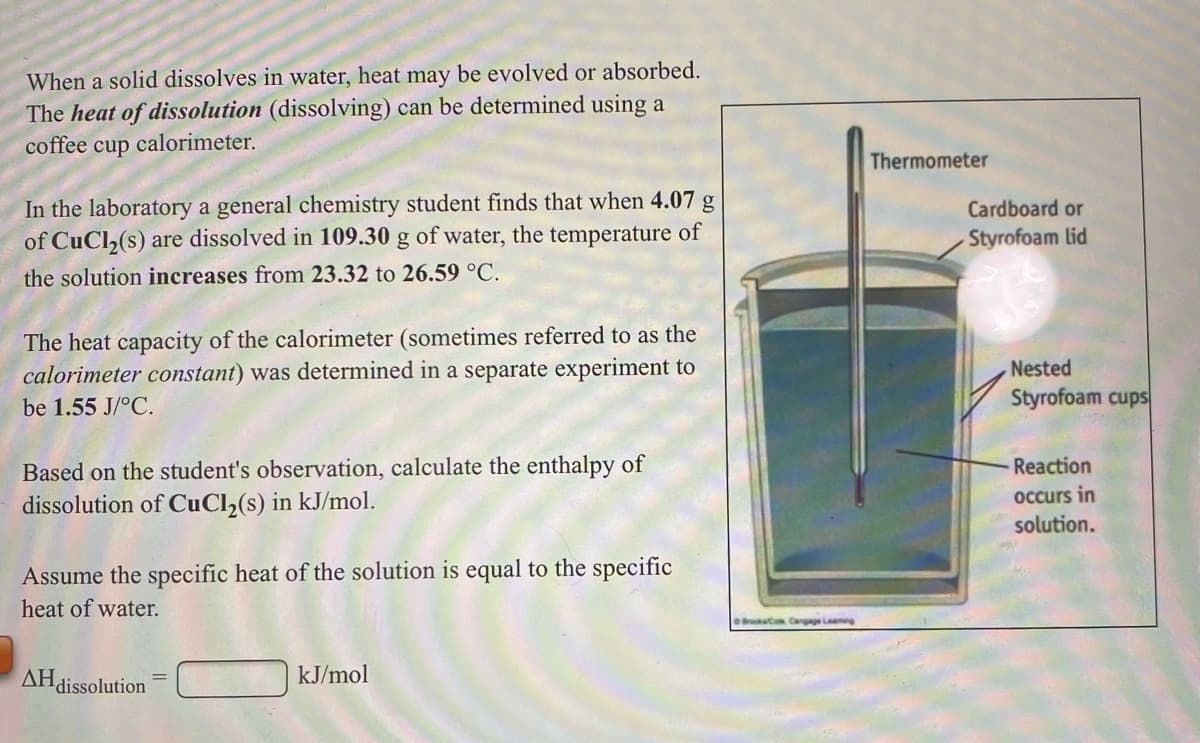When a solid dissolves in water, heat may be evolved or absorbed. The heat of dissolution (dissolving) can be determined using a coffee cup calorimeter. Thermometer In the laboratory a general chemistry student finds that when 4.07 g of CuCl,(s) are dissolved in 109.30 g of water, the temperature of Cardboard or Styrofoam lid the solution increases from 23.32 to 26.59 °C. The heat capacity of the calorimeter (sometimes referred to as the calorimeter constant) was determined in a separate experiment to Nested be 1.55 J/°C. Styrofoam cups Based on the student's observation, calculate the enthalpy of dissolution of CuCl,(s) in kJ/mol. Reaction occurs in solution. Assume the specific heat of the solution is equal to the specific heat of water. Bt Ca L ΔΗ, 1dissolution kJ/mol
Thermochemistry
Thermochemistry can be considered as a branch of thermodynamics that deals with the connections between warmth, work, and various types of energy, formed because of different synthetic and actual cycles. Thermochemistry describes the energy changes that occur as a result of reactions or chemical changes in a substance.
Exergonic Reaction
The term exergonic is derived from the Greek word in which ‘ergon’ means work and exergonic means ‘work outside’. Exergonic reactions releases work energy. Exergonic reactions are different from exothermic reactions, the one that releases only heat energy during the course of the reaction. So, exothermic reaction is one type of exergonic reaction. Exergonic reaction releases work energy in different forms like heat, light or sound. For example, a glow stick releases light making that an exergonic reaction and not an exothermic reaction since no heat is released. Even endothermic reactions at very high temperature are exergonic.

Step by step
Solved in 2 steps









